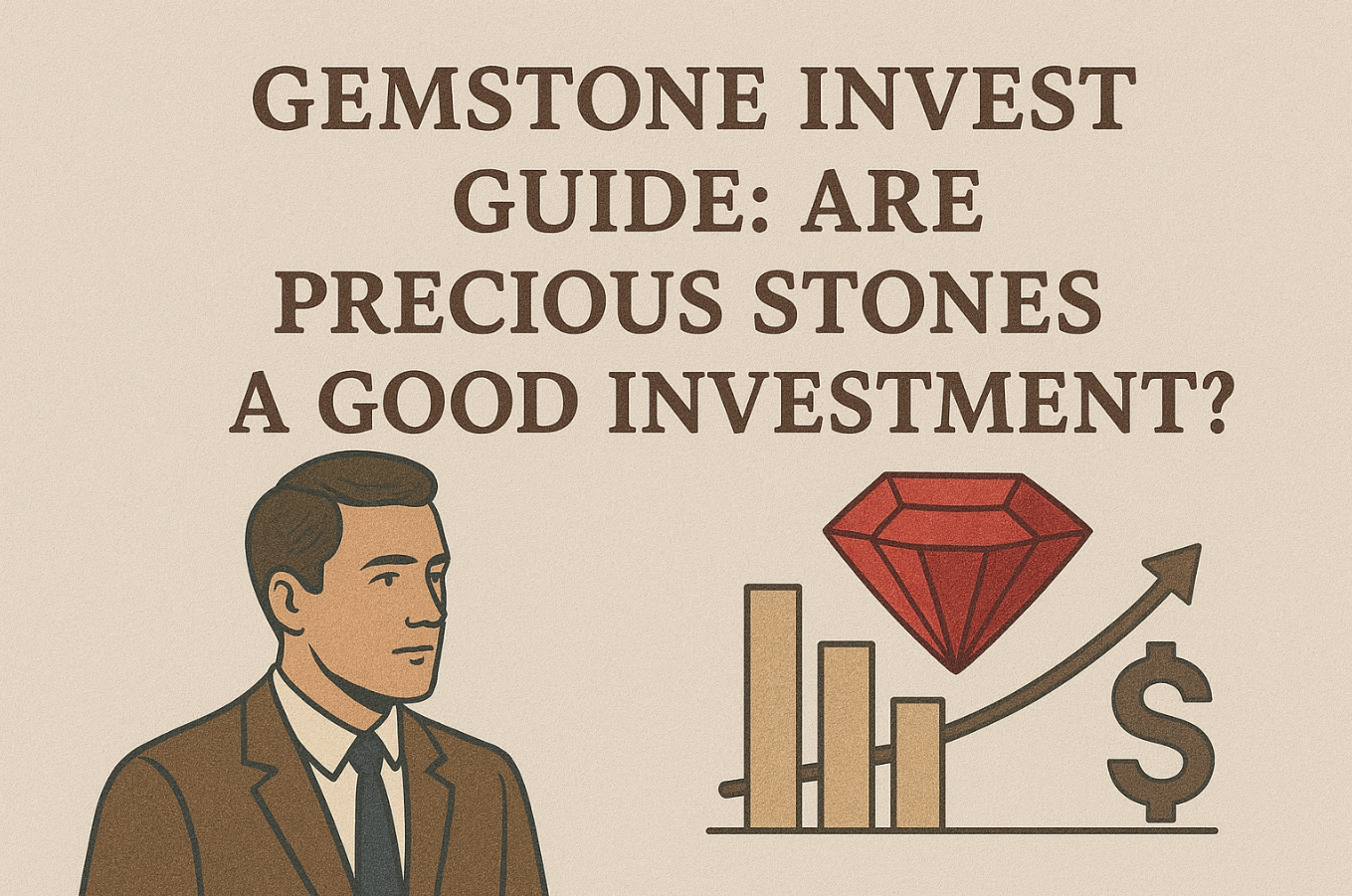For centuries, gemstones have been more than just jewelry they’ve been symbols of wealth, power, and stability.
From royal crowns to modern luxury collections, rare gems like rubies, emeralds, and diamonds have always fascinated investors.
But in today’s world of crypto, stocks, and gold, the big question remains:
👉 Are gemstones still a smart investment?
Let’s dive into a complete guide that helps you understand the real value of gemstone investing with insights from gem experts, traders, and collectors.
Table of Contents
💰 1. Why People Invest in Gemstones
Unlike stocks or bonds, gemstones are tangible assets beautiful, portable, and timeless.
They don’t depreciate easily and often become more valuable with time.
Here’s why many investors love them:
✅ Rarity = Value
Natural gemstones are becoming harder to find, especially unheated rubies, untreated sapphires, and flawless emeralds.
✅ Inflation Hedge
Like gold, gemstones often retain value even when currency weakens.
✅ Global Demand
With rising luxury demand in countries like India, China, and the UAE, fine gems are increasingly seen as an alternative investment class.
✅ Emotional + Financial Value
A gemstone can be both a beautiful possession and a profitable asset.
💎 2. The Most Valuable Gemstones for Investment
Not all gems are created equal.
Here are some of the best-performing stones that have consistently appreciated in value:
🔴 1. Ruby (The King of Gems)
- Especially Burmese Rubies are among the rarest and most expensive gems in the world.
- A top-quality ruby can be worth more per carat than a diamond.
🔵 2. Blue Sapphire
- Kashmir and Sri Lankan sapphires are globally sought after.
- Their color, clarity, and origin dramatically influence value.
🟢 3. Emerald
- Colombian emeralds, known for their vivid green hue, are true collector’s items.
- Unenhanced (untreated) stones fetch the highest prices.
⚪ 4. Diamond
- Classic investment choice, especially certified, conflict-free diamonds with strong resale potential.
🟣 5. Paraiba Tourmaline & Alexandrite
- Rare and exotic, these gemstones have seen massive price surges in the past decade.

📜 3. The Role of Certification in Gem Investment
If you’re buying gemstones for investment, certification is everything.
Always ensure your gems are verified by trusted labs like:
- GIA (Gemological Institute of America)
- IGI (International Gemological Institute)
- GRS (GemResearch Swisslab)
- Gübelin Gem Lab
Certification protects you from fraud and ensures that the gem:
- Is natural (not lab-grown or synthetic)
- Has accurate grading (color, cut, clarity)
- Discloses any treatments or enhancements
💡 Pro Tip: A gem’s origin (Burma, Kashmir, Colombia, etc.) significantly affects its market value – and is always mentioned in certified reports.
📈 4. How Gemstone Prices Appreciate
Gemstone value depends on:
- Rarity (how limited the supply is)
- Quality (color, clarity, cut, and carat weight)
- Market Demand (popularity, trends, and region)
- Origin and Treatment
For example:
A natural, untreated Burmese ruby from 1980 may have appreciated over 300–400% by 2025.
However, treated or synthetic stones rarely increase in value.
🧠 5. Tips for Investing Wisely in Gemstones
If you’re new to gemstone investment, follow these expert-approved steps:
✅ 1. Educate Yourself First
Understand the “4Cs” — Color, Clarity, Cut, and Carat.
✅ 2. Buy Certified Only
Never buy uncertified or “trust-based” gems, no matter how attractive the price.
✅ 3. Work with Reputed Dealers
Choose sellers associated with organizations like GJEPC or ICA.
✅ 4. Think Long-Term
Gems are not quick-flip assets. The best gains come after 5–10 years.
✅ 5. Diversify Your Portfolio
Don’t put all your capital in one type of gemstone. Mix rubies, sapphires, and emeralds.
🧾 6. The Risks You Should Know
While gemstone investing is exciting, it’s not risk-free.
Common risks include:
- Buying synthetic or treated stones unknowingly
- Difficulty in immediate resale
- Lack of price transparency
- Market volatility in luxury segments
💡 Always buy from certified gemologists or trusted dealers and get your gems appraised periodically.
🌍 7. The Emerging Trend – Sustainable & Ethical Gems
The new generation of investors prefers ethically sourced, traceable gemstones.
Gem labs and brands now use blockchain technology to prove:
- Origin traceability
- Fair trade mining practices
- Eco-friendly sourcing
This not only enhances transparency but also adds long-term resale value.
🏁 Final Verdict: Are Gemstones a Good Investment?
✅ Yes – if done correctly.
Gemstones are timeless, portable, and beautiful assets that can provide steady appreciation.
However, like art or luxury watches, their value depends on expert selection, certification, and patience.
So before investing, remember:
“Buy knowledge first – the gem comes next.”
With proper research and trusted dealers, your gemstone collection can shine both emotionally and financially for generations to come.